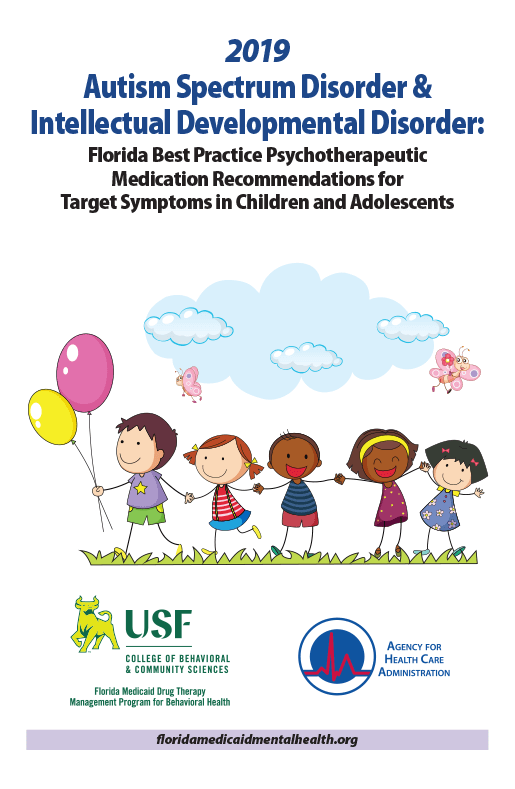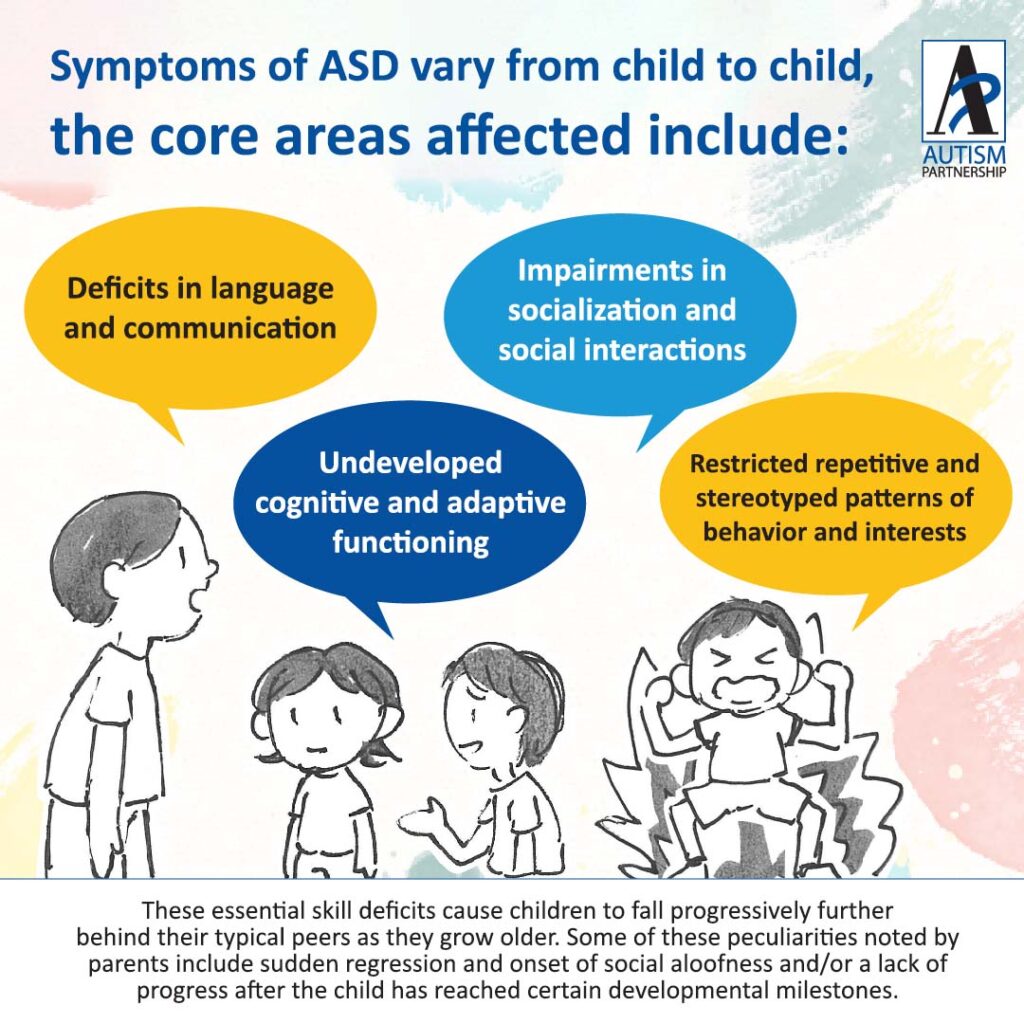Secret Signs and Signs And Symptoms to Recognize in Individuals With Behavioral Autism
When you run into someone with behavioral autism, recognizing essential signs and symptoms is vital. Furthermore, sensory sensitivities can lead to overwhelming experiences.
Obstacles in Social Interactions
When you connect with somebody on the autism range, you could notice they struggle with social signs and communication. These difficulties can make social interactions really feel frustrating for them. You may see them avoiding eye get in touch with or standing as well close or too away during discussions, which can produce misunderstandings. They could not notice body language or face expressions, making it harder for them to assess just how others are really feeling.
When they do involve, they may chat about their rate of interests in great information without discovering if you're interested. Comprehending these obstacles can help you come close to communications with empathy and perseverance, fostering a more comfortable environment for both of you.
Trouble With Verbal and Non-Verbal Interaction

Acknowledging these indicators is crucial, as it helps you better assistance and involve with people on the autism range. By understanding their interaction difficulties, you can promote much more significant connections and offer a much more supportive atmosphere.
Repetitive Behaviors and Routines
Communication obstacles often accompany other signs of autism, such as recurring behaviors and a strong choice for regimens. You may observe that individuals with autism frequently involve in specific, repeated actions, like hand-flapping, rocking, or duplicating phrases. These habits can offer convenience and a feeling of control in an usually frustrating world.
When they adhere to a structured timetable,Routines are just as vital; several individuals flourish. You might locate that adjustments to these routines can lead to significant distress. If they have an everyday routine of consuming morning meal at a certain time or following a specific path to institution, any interruption can create anxiousness.
Acknowledging these patterns helps you comprehend their habits and give assistance. By accommodating their requirement for routine and allowing repetitive activities, you can develop a much more comfy atmosphere that alleviates their challenges.
Sensory Level Of Sensitivities

Typical Sensory Triggers
Sensory level of sensitivities can considerably influence daily life for people with autism, as specific stimulations commonly trigger overwhelming reactions. Common sensory triggers consist of loud noises, intense lights, and strong scents. Recognizing these triggers can aid you manage your atmosphere better.
Behavioral Feedbacks Described
Recognizing your behavioral actions to sensory sensitivities is essential, as they usually expose exactly how you engage with the globe. You may discover that particular sounds, lights, or appearances bewilder you, leading to anxiousness or pain. When faced with these stimulations, you might take out, cover your ears, and even respond boldy. These responses aren't simply quirks; they're your way of handling overstimulation. You may likewise locate on your own seeking certain sensory experiences, like deep stress or quiet environments, to aid ground yourself. Acknowledging these patterns aids you understand your needs much better and can direct how you connect them to others. By recognizing your sensory level of sensitivities, you can work towards developing a setting that really feels much more workable and comfortable for you.
Coping Approaches Introduction
Acknowledging your sensory sensitivities is just the initial step; currently it's time to discover coping techniques that can assist you handle those experiences effectively. Begin by developing a sensory toolkit tailored to your needs. This can include noise-canceling headphones, fidget toys, or calming aromas. Developing a structured routine can additionally give predictability, decreasing anxiety around sensory overload. When you really feel overwhelmed, take breaks in a quiet area to collect yourself. Exercising mindfulness techniques like deep breathing can assist ground you in the moment. In addition, interact your requirements with those around you; having supportive buddies and family can make a significant difference. Remember, locating what works finest for you may take time, so be open and patient to attempting brand-new techniques.
Limited Passions and Emphasis
While several individuals develop a variety of interests, those with autism frequently show restricted passions and an extreme concentrate on particular topics. You could observe that someone with autism can invest hours delving right into their favorite topic, whether it's a particular kind of train, a particular movie, or a get more info clinical principle. This intense focus isn't just a hobby; it can end up being a central part of their identity and social interactions.
You may find that conversations focus on these passions, and they might struggle to participate in wider topics. For them, these concentrated passions give convenience and a feeling of proficiency. While it's vital to motivate expedition of new subjects, respecting their passions is just as important. By understanding and recognizing these limited rate of interests, you can promote an encouraging setting where they feel valued and understood, enabling even more significant connections and interactions.
Emotional Regulation Problems
People with autism typically encounter challenges in psychological law, which can be influenced by their extreme emphasis on particular rate of interests. You could notice that when an individual is deeply involved in a preferred activity, they can experience strong feelings, whether exhilaration or aggravation. This intensity often makes it tough for them more info to shift gears or handle their feelings when things don't go as planned.

Irregularity in Developing Milestones
When it concerns developing milestones, you'll notice that individuals with autism frequently show a vast array of irregularity. Some might strike turning points on schedule, while others might hang back or progress at a various speed. For example, you may see a kid master language abilities but fight with social interactions. This variance can be confusing, as standard standards don't constantly apply.
It's important to recognize that each individual's trip is special. Some might develop complicated abilities early, just to face difficulties in the future. Others might take longer to accomplish basic landmarks yet after that prosper in details areas. Observing these patterns can aid you understand their toughness and needs better.
Regularly Asked Inquiries
How Is Autism Identified in Children and Grownups?
To detect autism in adults and kids, experts examine behavior, communication skills, and social interactions. They usually use standardized tests, interviews, and observations to identify if a private meets the criteria for autism spectrum disorder.
Are There Various Types of Autism Range Disorders?
Yes, there are various kinds of autism spectrum problems, including Asperger's disorder and prevalent developmental disorder-not or else defined. Each type differs more info in seriousness and features, so recognizing these differences can aid you far better support individuals with autism.
What Therapies Are Effective for People With Autism?
When taking into consideration efficient therapies for people with autism, you'll discover options like Applied Behavior Evaluation, speech treatment, and work therapy. Each strategy can assist boost interaction, social abilities, and daily operating customized to individual demands.
Can Individuals With Autism Lead Independent Lives?
Yes, individuals with autism can lead independent lives. With the appropriate support, abilities training, and resources, you can help them create self-sufficiency, take care of day-to-day jobs, and flourish in numerous atmospheres, fostering their self-reliance.
How Can Family Members Support Enjoyed Ones With Autism?
You can sustain your enjoyed ones with autism by producing a structured setting, urging their passions, practicing persistence, fostering interaction, and advertising social skills. Commemorate their achievements, despite exactly how small, and develop a helpful community.
Although lots of people on the autism spectrum can use and comprehend language, they usually face considerable difficulties with both non-verbal and verbal interaction. Recognizing these indicators is important, as it aids you better support and involve with people on the autism range. You may notice that individuals with autism commonly involve in particular, repeated activities, like hand-flapping, rocking, or repeating expressions.Sensory level of sensitivities can considerably affect everyday life for people with autism, as specific stimulations often set off overwhelming responses.When it comes to developing landmarks, you'll discover that people with autism usually show a wide range of variability.
Comments on “Do Autism Spectrum Therapies help with developing independence in teens with ASD?”